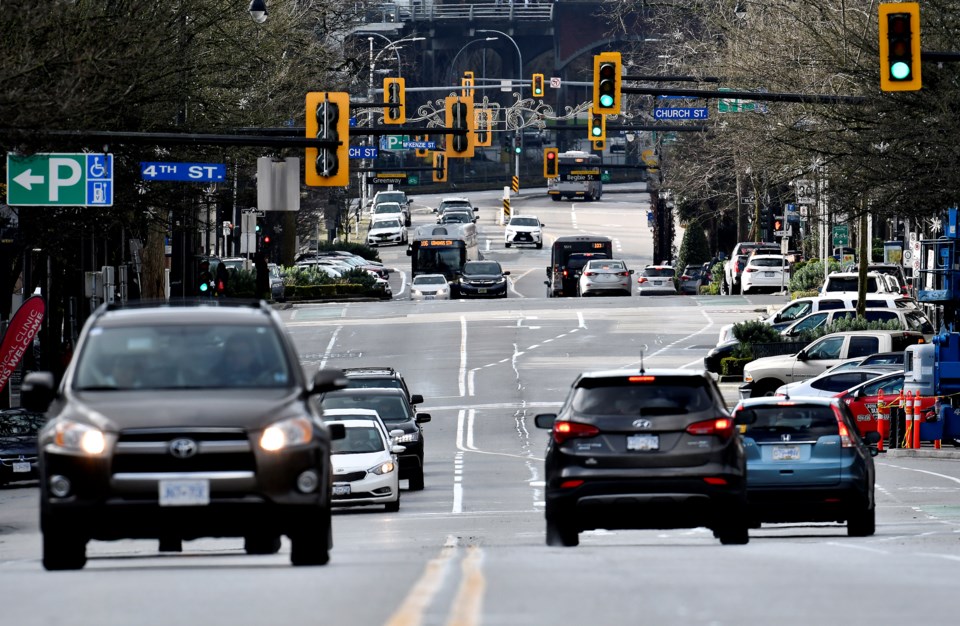British Columbia’s “urban mayors” have mapped out their priorities for the provincial government – with community safety and affordable housing being among the top issues.
In a letter sent to Premier David Eby in December, mayors from 16 of the largest municipalities in B.C. identified a series of directions they said the premier could, and should, give to his new cabinet through their mandate letters. (Mandate letters outline the issues, objectives, and actions each minister will work towards during their time in office.)
The BC Urban Mayors’ Caucus outlined four priority action areas: mental health and substance use and treatment; community safety and wellness; affordable housing; and transit and transportation.
“Premier Eby has said that he intends to do things differently this term. And while we have seen some changes, including changes to the municipal affairs portfolio, we are waiting for the release of the ministerial mandate letters to fully assess what these changes mean for local governments, and our ability to deliver on our residents’ priorities,” said Victoria mayor and caucus co-chair Marianne Alto in a Jan. 17 news release. “The Mayors’ Caucus has put a lot of thought into these recommendations, and we hope that Premier Eby will listen to the advice of local government. We want to work collaboratively with the premier, and acting on these recommendations would be a positive first step.”
The BC Urban Mayors’ Caucus is a non-partisan group of mayors from 16 of B.C.’s largest cities representing more than 55 per cent of the province’s total population: Abbotsford, Burnaby, Chilliwack, Coquitlam, Delta, Kamloops, Kelowna, Maple Ridge, Nanaimo, New Westminster, Prince George, Richmond, Saanich, Surrey, Vancouver and Victoria. The group formed in response to the COVID-19 pandemic and then reconvened following the 2022 municipal elections to act as a collective voice on critical issues facing their communities and urban British Columbia.
The BC Urban Mayors’ Caucus’s Jan. 17 news release outlining its priorities for the province came the day after Eby released mandate letters for cabinet ministers.
On Jan. 16, Eby said he had directed all cabinet ministers to review spending in their ministries and to reinforce frontline services. That move was part of the province’s response to potential impacts related to the 25 per cent tariff U.S. President Donald Trump has proposed on Canada.
New Westminster Mayor Patrick Johnstone said the goals of the provincial government and of local governments are ultimately the same: making housing affordable, supporting the most vulnerable people in the community, and getting the infrastructure built to support growing communities.
“The BCUMC have a baker’s dozens of asks, around addiction treatment, public safety, housing and infrastructure, but the overall theme is that we need to work together. The province needs to be talking to local governments about the supports we need to make a difference in our communities, and to do the work our residents and business are asking for us to do,” he said in a statement to the Record. “There are headwinds in the geopolitical forecast, but economic uncertainty does not reduce our day-to-day need to provide for our communities.”
The BC Urban Mayors’ Caucus list contained 13 recommendations aimed at tackling some of the biggest challenges faced by local governments.
- Direct the Minister of Health to engage directly with local governments to assess the need for substance use treatment and supports in each community, to improve local-government involvement in the creation of local-specific mental health supports.
- Direct the Minister of Health to immediately expand access to detox beds, sobering beds, and stabilizing beds in communities across BC.
- Direct the Minister of Health to explore options for provincially funded recovery communities, and investment in a comprehensive range of recovery programs.
- Direct the Minister of Municipal Affairs and Housing, in collaboration with his colleagues, to establish shelter unit minimums for each community in B.C.
- Direct the Minister of Municipal Affairs and Housing to establish minimum care and operational standards for sheltering and supportive housing facilities, including their impact on neighbourhoods and neighbours.
- Direct the Minister of Housing to reform BC Housing, including providing BC Housing with a new mandate that directly addresses the need for BC Housing to work more urgently with municipalities and establishes BC Housing as the agency responsible for sheltering and supportive housing.
- Direct the Minister of Public Safety and Solicitor General and the Minister of State for Community Safety to create funding and support for local governments that are creating or implementing community safety and wellbeing plans.
- Direct the Minister of Public Safety and Solicitor General and the Minister of State for Community Safety to create a provincial urban downtown safety improvement plan.
- Direct the Attorney General to act on bail reform, and immediately increase funding for provincial court services, to increase the speed and efficiency in which violent and repeat offenders can be processed through the court system.
- Direct the Minister of Infrastructure to work with colleagues in the Ministry of Housing and Municipal Affairs, the Minister of State for Local Governments and Rural Communities, and yourself, to build a municipal infrastructure funding program.
- Direct the Ministers of Health, Social Development and Poverty Reduction, Housing and Municipal Affairs, and Solicitor General to work collaboratively to address poverty, encampments, community wellbeing, food security, the mental health and addictions crisis, and street disorder by establishing a cabinet roundtable, working group, or committee to address these challenges collectively.
- Direct the Minister of Health to expand the PACT/CLCR programs and advance civilian-led mental health response programs throughout BC.
- Direct the Minister of Finance to explore cannabis-revenue-sharing programs with local governments.



